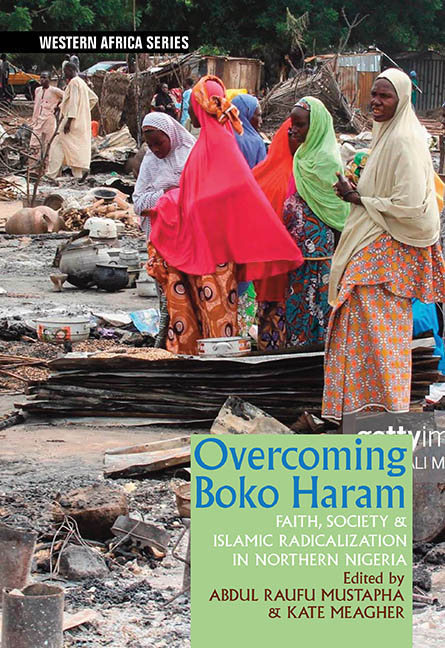Book contents
8 - An inquiry into possible factors contributing to radicalization in childhood & youth in northern Nigeria
Published online by Cambridge University Press: 21 March 2020
Summary
Introduction
The experience of childhood in northern Nigeria varies widely, of course, across the groups and environments that make up the north. Nonetheless I will try here to spell out some of the factors that might be involved in turning a youth into the path of radical religious politics. Much of what I will write is based on living two years within a large farmstead in southern Katsina; I go back there every year and have seen the very young grow up into adults over the last 47 years. But I have also shared a house with adult almajirai for a year in Birnin Zaria, and studied (karatu) Arabic Islamic texts alongside them. In the 1990s, Hausa colleagues and I for several years did field research on youth in Kano. Above all, I have been a guest of many friends and colleagues in various towns in northern Nigeria, and chatted for many hours, gradually (I hope) understanding better how Hausa social life works.
I admit I have not been in Maiduguri or Potiskum in the Kanurispeaking heartlands of Nigeria for many years, so this analysis is predominantly Hausa-focused. Indeed, one of the key questions among the people of Kano today is why so few supporters, apparently, of the Jama‘atul Ahlul Sunna li Da‘wat wal Jihad, also known as Boko Haram, are found there. It is true that no one knows precisely the make-up of the forces that Boko Haram draws in: we know their fighters and spokesmen come from different groups – Igbirra (for example, their spokesman ‘Abu Qaqa’), Igbo (e.g. Aminu Sadiq Ogwuche in Abuja), as well as Kanuri and related north-eastern groups including some from the Niger Republic, Cameroon and Chad. We know, too, that bombs have gone off in Lagos, Kaduna and Jos, kidnappings have taken place in Kebbi and Katsina, in Gombe and Bauchi, and Ansaru ( Jama‘atul Ans.arul Muslimina fi Biladis Sudan –Vanguards for the Aid of Muslims in Black Africa) operated for a while out of Kano; murders have occurred there as they have too in Zaria. Traditionally, after independence in 1960, many almajirai were still being sent in groups as young boys from the villages of Katsina and Kano to study the Holy Qur’an in western Borno where the best teachers (malamai) and their schools (tsangaya) were to be found, and where Qur’anic calligraphy was finest.
- Type
- Chapter
- Information
- Overcoming Boko HaramFaith, Society and Islamic Radicalization in Northern Nigeria, pp. 225 - 243Publisher: Boydell & BrewerPrint publication year: 2020

